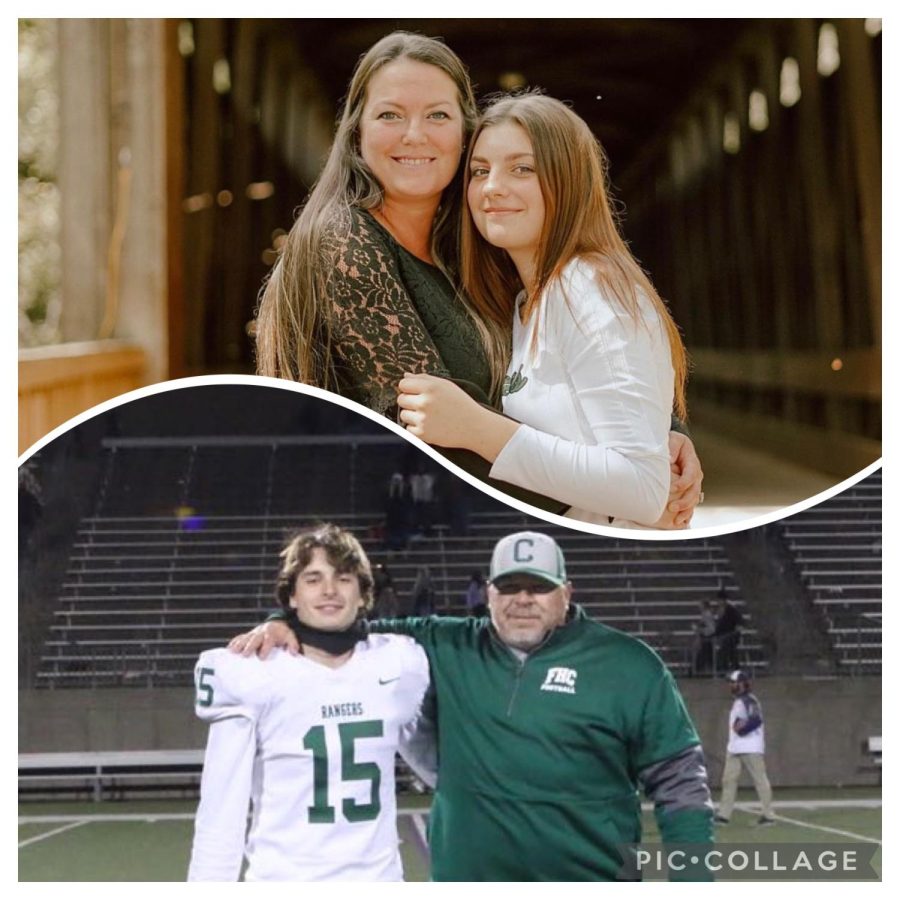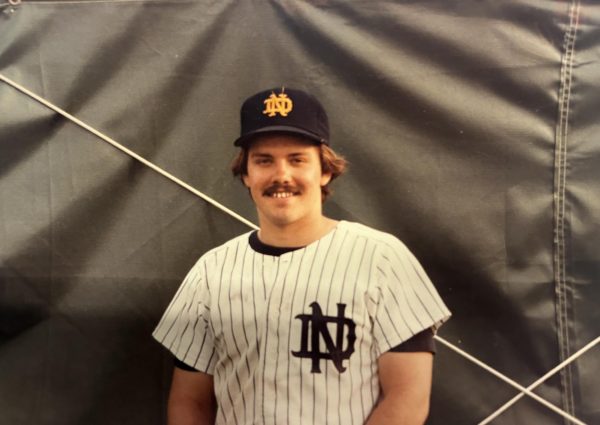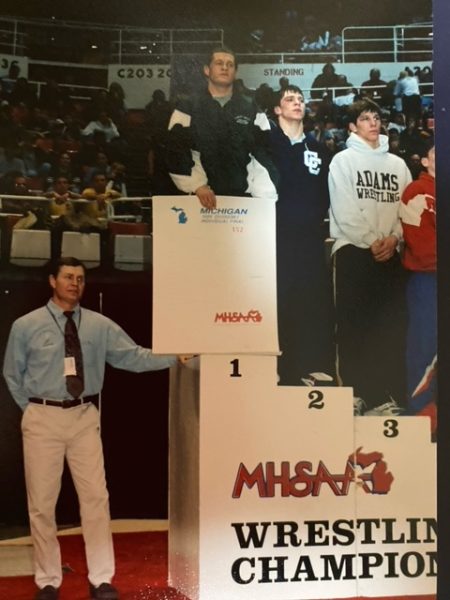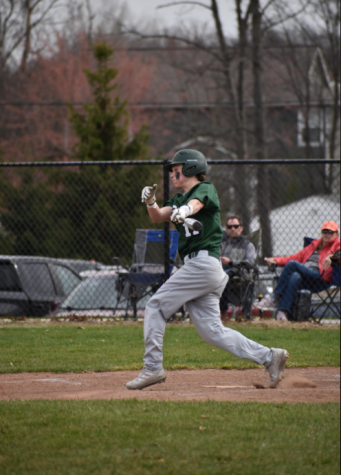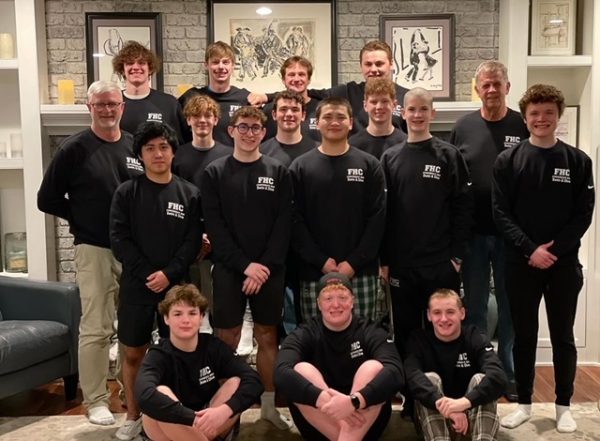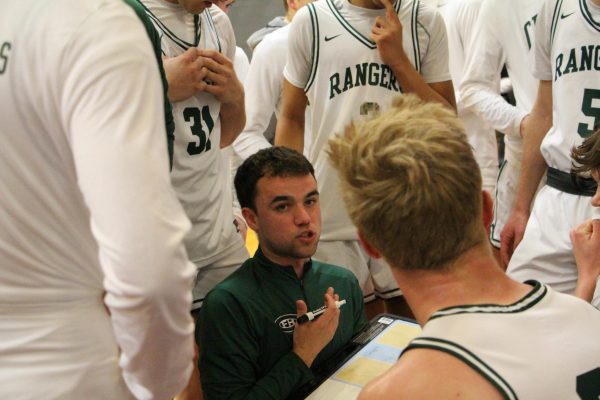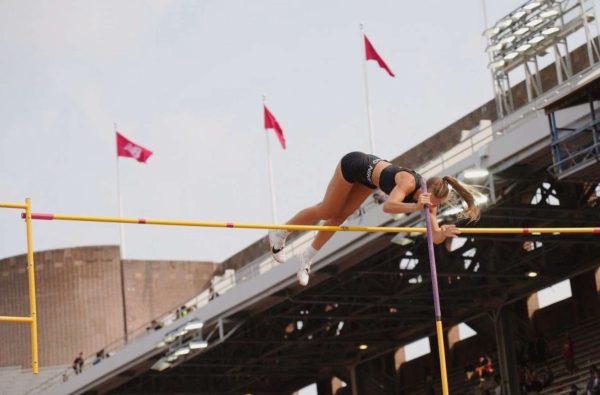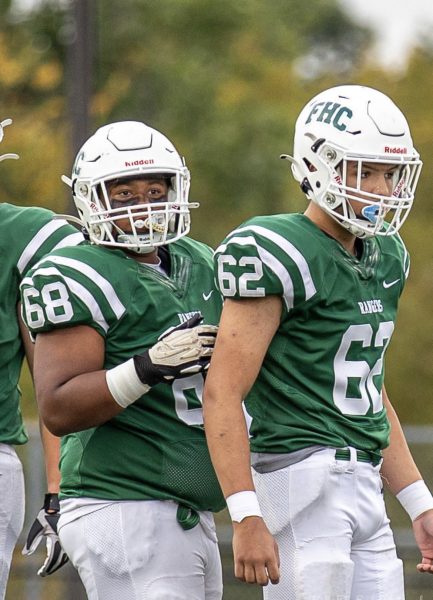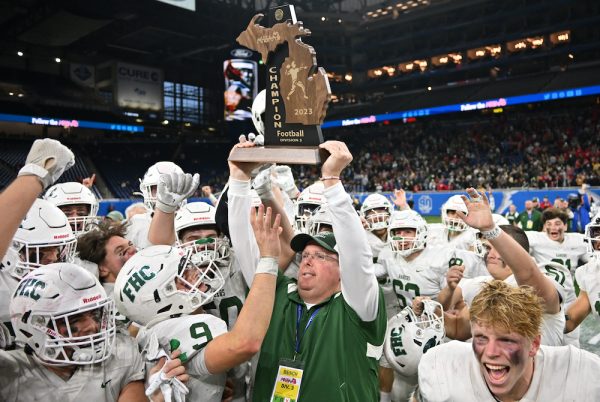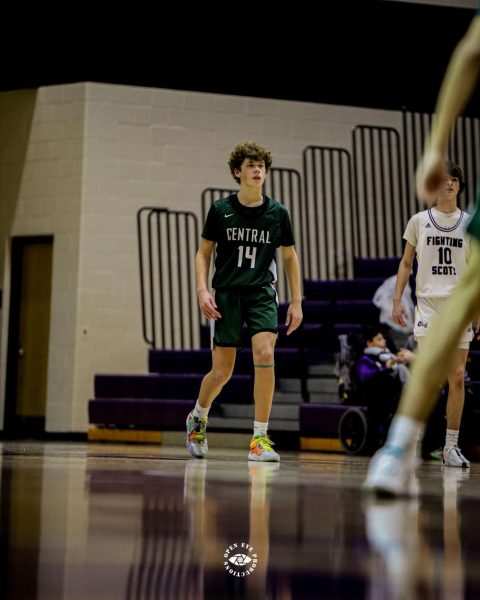Part parent, part coach

More stories from Letizia Cumbo-Nacheli
All athletes are familiar with the phrase “coach’s kid”. However, to these two talented, varsity athletes who have their parents as their coach, that phrase is nothing but a lie.
Drew Fortino, junior wide receiver and outside linebacker on the varsity football team, shared his thoughts on this phrase by saying, “My dad is tougher on me than anyone else, so I like to think that nothing has been handed straight to me and that I had to earn it. My dad actually favors other players over me.”
Kadence Roelfzema, junior setter on the varsity volleyball team replied, “When people on my own team refer to me as “coach’s daughter”, it makes me feel like my role is being looked down on or that people think that I’m not as valuable. When my own teammates use this phrase against me, they make it seem like I don’t deserve to be on the team and that I’m just on it because my mom is coaching. When I hear the other team saying “coach’s daughter,” it makes me want to prove them wrong and show that I deserve my spot on the team.”
Both of these athletes go through the struggles of having a parent as their coach; however, there are benefits too.
“Football brought me closer to my dad. It is one of the things that we can talk about all the time,” Drew stated.
“I like having my mom as my coach. Sometimes, it’s hard because of how close of a relationship I have with her. She’s harder on me because on top of being my coach she is my mom, but I wouldn’t change it for the world,” Kadence said.
Their parents and part time coaches also commented on how having their own kid play for their team.
Coach Natalie Roelfzema [Kadence’s mom], head varsity volleyball coach, said, “I like being able to coach Kadence because I get to spend time with her daily during the season. I also like being able to see her growth and helping her develop as an athlete and leader. Coaching her has helped our relationship as it is nice being able to share both our love for the game together.”
Coach Dave Fortino [Drew’s dad], offensive line coach, said, “In my opinion, it has only made Drew and I closer.”
Along with this, coach Fortino went more in depth about relationships by saying, “Football is a way of making connections. It doesn’t matter if it’s with teammates, coaches or families. It’s a sport built on community. No team can be successful because of one person. It takes the team, the coaches, the parents, the booster, the student section, everyone. It’s the greatest sport ever invented, and my relationship with Drew and my daughter, Lindsey, is stronger because of it.”
Both of these athletes have been involved in their chosen sports for almost their entire lives as Kadence has been in the gym since her mom was pregnant with her. She recalls when she truly started playing volleyball was when she began participating in volleyball camps in fourth grade. Drew was introduced to football by his dad when he was a baby. He started playing tackle football in third grade. The real question is why did Drew’s dad and Kadence’s mom introduce their children to these sports in the first place?
Coach Fortino introduced Drew to football as soon as he could because he believes, “Football is the best vehicle to teach a person how to become a responsible adult. You have to put aside all personal ambitions to put the team first. There is no better way to help young people learn mental toughness and to overcome adversity.”
Coach Roelfzema comments that she did not introduce Kadence to volleyball but rather only exposed her to it since she was six-months-old. Coach Roelfzema said, “I did not push her to play volleyball, but rather she decided to on her own; however, she has been influenced by me coaching and being consistently in the gym, which I believe led her to playing volleyball.”
The process of the exposure to sports at such a young age to becoming highly committed athletes in high school also comes with an abundance of boundaries that are not meant to be crossed. Playing a sport already has a high amount of pressure added to it, and this pressure is inevitable. These two athletes and their parents had to set the law straight of where to draw the line from pressure coming from a coach and pressure coming from a parent.
Drew feels that he is more pressured since his dad yells at him more than he yells at the other kids but he said that, “During the game he doesn’t give me many compliments during the game because he wants me to stay focused and not let it get to my head. When I get home, he is a dad and gives me the sympathy he didn’t during the game. For example, if I was having an off day, a dad would say, “I’m here for you” but as a coach he tells me to focus on the next play, you got this.”
Coach Fortino comments about this fine line as he remembers before Drew’s high school football career even started, he made an agreement with Drew. “I told him that I would never coach his position in high school. I tend to be very hard on him and didn’t want to put that extra pressure on him. I am a coach at practice and a dad at home. He doesn’t need to be coached 24 hours a day. He gets enough of that. I can be tough at practice, but I am super proud of my son at home.”
Kadence acknowledges that her mom pushes all the girls extremely hard; however, she added, “Since my mom and I obviously have a relationship outside of volleyball, she tells me what she needs from me, and it adds a little more pressure because I want to make her proud as a mom and coach.
In response to these comments, coach Roelfzema emphasized, “I am a coach who pushes all my athletes to be the best that they can be. To be honest, I do think that sometimes it is hard to take off your coaching hat or your mom hat. Sometimes, Kadence has to remind me, or if I catch myself, I remind myself that there are two different times to be a mom and a coach. If I could speak with other coaches and give them advice, I would tell them to establish clear expectations and boundaries between your parent role and your coaching role. Most importantly, enjoy your time that you get to spend with your child.”
At the end of the day, all four of these individuals have bonds beyond player and coach. These two dynamic duos are inseparable and spark growth on the court, field, and at home. One life lesson these two have learned from growing up with their parents as their coach is to not take anything personal as they [coaches] just want to make them better. Knowing both of these student-athletes, it is evident that their parents are succeeding.

Hey friends! Letizia Cumbo-Nacheli (best known by the name TZ) is 16 years old and she is currently a Junior at Forest Hills Central High School. She plays...



